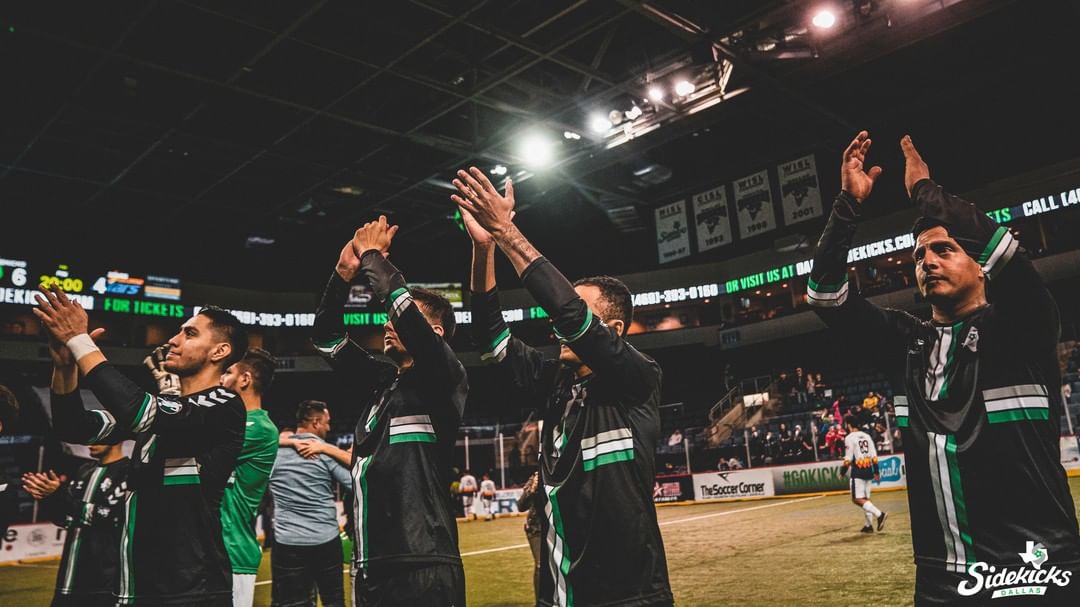With the Major Arena Soccer League electing to simply end its season early and, for now, forgo playoffs, that means it’s time to unpack just what all went down with the Dallas Sidekicks this past season.
The year began with the announcement that the Mesquite Outlaws, the Sidekicks’ new cross-town rivals, had signed Sidekicks legend Tatu as head coach and general manager, Kevin Smith, Nick Stavrou, and Sagu Xavier as assistants, and a handful of stars from the Sidekicks 2018-2019 team. This absolutely gutted the core of the Kicks roster and left the team on the back foot from day one.

As the season kicked off back in November, the Sidekicks had initial hopes that new additions would at least equal the performance of the previous team. A narrow loss by 2 in Mesquite showed promise. This was soon quashed, as Dallas lost to Monterrey and Sonora by a combined margin of 27-6 in their next two games.
Things only got worse from there, winning just one game from seven before the end of 2019.
After winning their first home game of 2020, the team then went on a 10 game losing streak that didn’t end until February 28.
It’s hard to find highlights from the season to emphasize but there were a couple of standouts. Rookie signing Lipe De Andrade finished with 16 goals and 8 assists, while Freddy Moojen arrived from Utica to score 21 goals with 4 assists, leading the team in points. Arthur Ivo posted a respectable 11 goals with 1 assist in the 10 games he played, but he unfortunately only played 10 games.
From there, it’s a significant drop in production from the attacking players, with no one else managing double-digit goals or more than 10 points, and in this league, that quite simply is not good enough.
On defense, the Kicks were the worst in the Western Conference, and it wasn’t even close. They allowed an eye-watering 178 goals, 50 more than next-worst Turlock, and in conceding an average of 8.09 goals per game, ranked second-worst among all Sidekicks teams dating back to 1984.
The defensive unit could find little consistency, and with Simon Bozas constantly rotating players in and out, what little chemistry they had evaporated. This all left goalkeeper Juan Gamboa completely out to dry in goal, despite still posting a respectable .640 save percentage.
Off the field, average attendance dropped by 15.7%, reaching a new low point of 2,205, although the league as a whole saw a similar decline across the board.
All of this added up to make for the worst season, bar none, in the history of the Dallas Sidekicks name.
At this point, it’s not difficult to see where the problems lie. When a team struggles to sign and retain talent and then struggles to use that talent effectively in games, one would usually turn to the front office or coaching staff to blame, and in the case of the Sidekicks, it’s one person: Simon Bozas.
Bozas is in one of the most unusual situations for a head coach or general manager, in that he holds both roles in no small part due to his rather significant ownership stake in the team. While it’s normally easy for a struggling team to sack their coach, Bozas has job security through investment, meaning it’s not likely for him to leave unless someone buys him out.
Which is a real shame.
We saw what Tatu and co could do with a clean slate in Mesquite, and saw impressive performances from a number of former Sidekicks. Given the state of last year’s 9-15 team, playoffs weren’t out of the question given slightly different circumstances.
But alas.
Wake me up in November.
